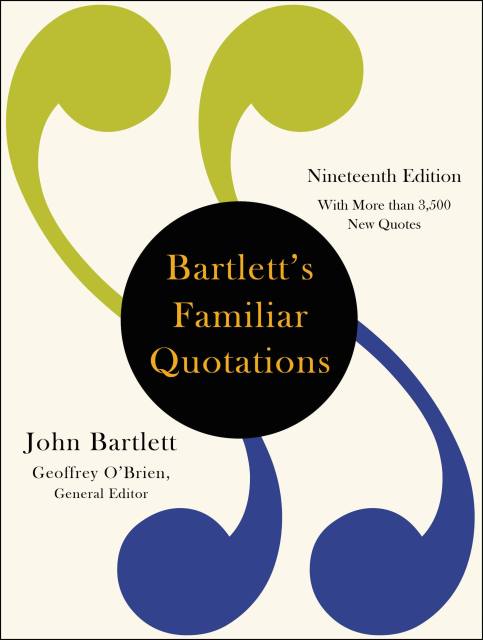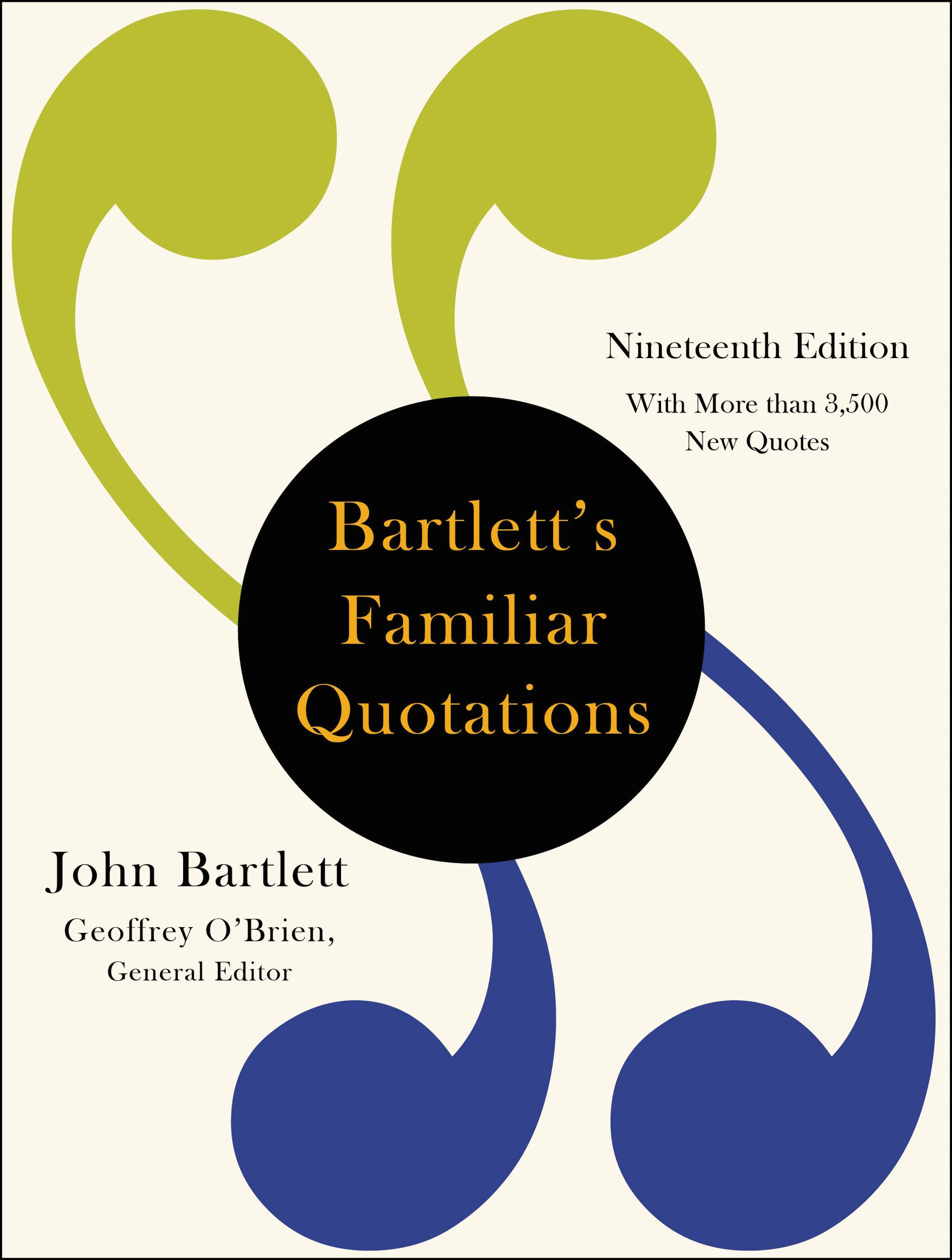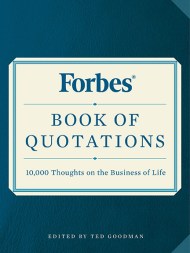Promotion
Use code MOM24 for 20% off site wide + free shipping over $45
Bartlett's Familiar Quotations
Contributors
Edited by Geoffrey O’Brien
Formats and Prices
Price
$60.00Price
$75.00 CADFormat
Format:
- Hardcover $60.00 $75.00 CAD
- ebook $27.99 $35.99 CAD
This item is a preorder. Your payment method will be charged immediately, and the product is expected to ship on or around October 25, 2022. This date is subject to change due to shipping delays beyond our control.
Also available from:
From ancient Egypt to today, enjoy a sweeping survey of world history through its most memorable words in this completely revised and updated nineteenth edition.
More than 150 years after its initial publication, Bartlett’s Familiar Quotations now enters its nineteenth edition. First compiled by John Bartlett, a bookseller in Cambridge, Massachusetts, as a commonplace book of only 258 pages, the original 1855 edition mainly featured selections from the Bible, Shakespeare, and the great English poets. Today, Bartlett’s includes more than 20,000 quotes from roughly 4,000 contributors. Spanning centuries of thought and culture, it remains the finest and most popular compendium of quotations ever assembled.
While continuing to draw on timeless classical references, this edition also incorporates more than 3,000 new quotes from more than 700 new sources, including Alison Bechdel, Ta-Nehisi Coates, Pope Francis, Atul Gawande, Ruth Bader Ginsburg, Hilary Mantel, Lin-Manuel Miranda, Claudia Rankine, Fred Rogers, Bernie Sanders, Patti Smith, and Malala Yousafzai. Bartlett’s showcases the thoughts not only of renowned figures from the arts, literature, politics, science, sports, and business, but also of otherwise unknown individuals whose thought-provoking ideas have moved, unsettled, or inspired readers and listeners throughout the ages.
Bartlett’s makes searching for the perfect quote easy in three ways: alphabetically by author, chronologically by the author’s birth date, or thematically by subject. Whether one is searching for appropriate remarks for a celebration, comforting thoughts for a serious occasion, or simply to answer the question “Who said that?” Bartlett’s offers readers and scholars alike a stunning treasury of words that have influenced
More than 150 years after its initial publication, Bartlett’s Familiar Quotations now enters its nineteenth edition. First compiled by John Bartlett, a bookseller in Cambridge, Massachusetts, as a commonplace book of only 258 pages, the original 1855 edition mainly featured selections from the Bible, Shakespeare, and the great English poets. Today, Bartlett’s includes more than 20,000 quotes from roughly 4,000 contributors. Spanning centuries of thought and culture, it remains the finest and most popular compendium of quotations ever assembled.
While continuing to draw on timeless classical references, this edition also incorporates more than 3,000 new quotes from more than 700 new sources, including Alison Bechdel, Ta-Nehisi Coates, Pope Francis, Atul Gawande, Ruth Bader Ginsburg, Hilary Mantel, Lin-Manuel Miranda, Claudia Rankine, Fred Rogers, Bernie Sanders, Patti Smith, and Malala Yousafzai. Bartlett’s showcases the thoughts not only of renowned figures from the arts, literature, politics, science, sports, and business, but also of otherwise unknown individuals whose thought-provoking ideas have moved, unsettled, or inspired readers and listeners throughout the ages.
Bartlett’s makes searching for the perfect quote easy in three ways: alphabetically by author, chronologically by the author’s birth date, or thematically by subject. Whether one is searching for appropriate remarks for a celebration, comforting thoughts for a serious occasion, or simply to answer the question “Who said that?” Bartlett’s offers readers and scholars alike a stunning treasury of words that have influenced
Genre:
-
“Bartlett’s Familiar Quotations remains the go-to source for checking who said what, when, and where. The massive manual of missives and mottos has enabled writers, students, and even gamblers (‘Bet you don’t know who said . . . ‘) to get it right.”Dave Kindy, Boston Globe
- On Sale
- Oct 25, 2022
- Page Count
- 1504 pages
- Publisher
- Little, Brown and Company
- ISBN-13
- 9780316375306
Newsletter Signup
By clicking ‘Sign Up,’ I acknowledge that I have read and agree to Hachette Book Group’s Privacy Policy and Terms of Use







